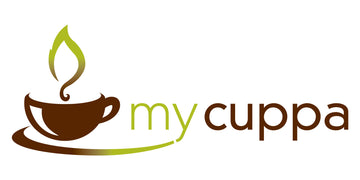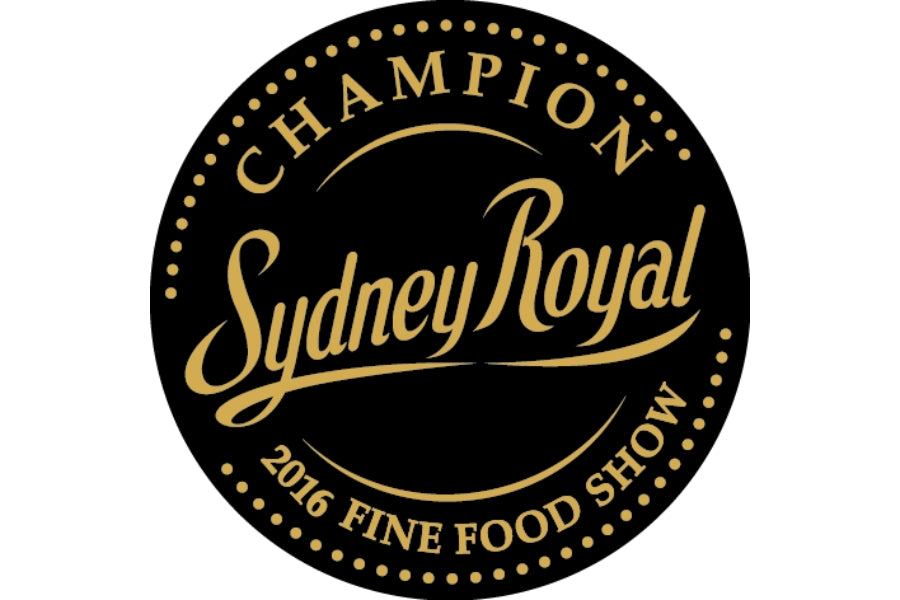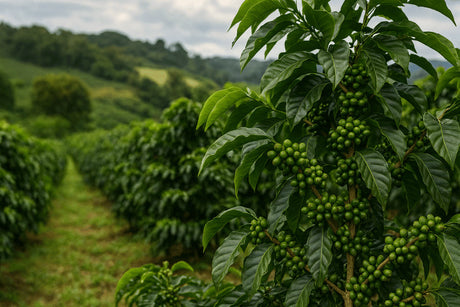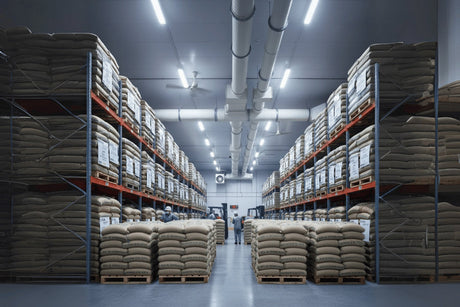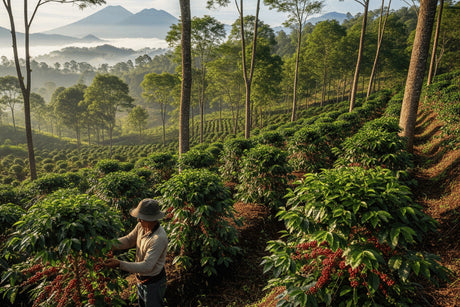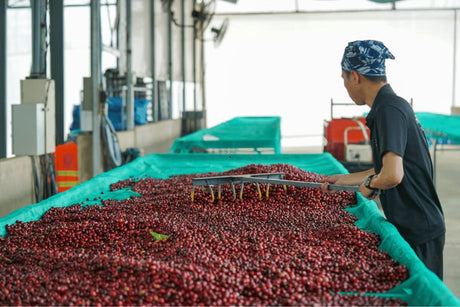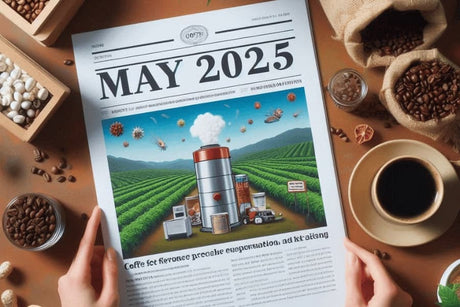March 2016 mycuppa Newsletter
mycuppa wins the Sydney Royal Coffee Awards
We were surprised to receive a call from the 2016 Sydney Royal Coffee Awards organisers informing us we won the event.
A total of 7 medals from 5 entries:-
- Best in Show (Overall) Kenya,
- Champion Roaster Latte (Overall) Kenya,
- Gold Medal Single Origin Kenya
- Silver Medal Single Origin Costa Rica Jaguar
- 3x Bronze Medals in espresso, milk-based espresso categories, and decaf.
The event attracted more than 300 entries from around Australia.
Our Kenyan coffee must have hit the right spot with the judges as it smashed everything that went up against it.
The official awards are at the end of March during the Royal Easter Show.
Mycuppa team is extremely pleased to achieve such spectacular success with our everyday coffees.
All the more rewarding considering that in the last 12 months, we have completely rebuilt our entire operation from scratch - a brand new facility, new infrastructure, new systems, and processes.
Beyond the success of the Kenyan, our Costa Rica Jaguar picked up Silver in Single Origin, and we collected Bronze for Centre Way, Suuweet and Decaffe.

Kenya
We feature Kenyan coffees, and it's also a timely article considering the recent success at the Sydney Royal Coffee Awards in February 2016.
Now, it might appear as a coincidence that we are just pushing a marketing angle, but the truth is that Kenya was scheduled for March 2016 back in October 2015 when we contracted the current lots in our holdings.
The coffee connoisseurs among our readers may have keenly noticed that we had covered most of the popular origins except for Kenya and Sumatra (Indonesia) in our monthly newsletter features.
As both origins tend to experience ongoing supply shortages (or, more correctly, smaller lots being sold relative to other producers), it presents challenges for us to offer specific feature coffees as a mainstay in our holding due to the rapid rotation of lots through our facility.
The coffees from these origins can also be vastly different from one lot to the next - ending up with the dilemma of describing a coffee and supplying something that may have tasted remarkably different.
We hold between 2 - 5 Kenya lots at most times.
Our holdings of each lot can be small - from a handful of 60kg bags up to half a ton, which are regularly rotated across roasting schedules weekly.
Each of our Kenyan lots is unique, and it's difficult to comprehend they all come from the same country as you can have something with chocolate, orange, blackberry, apricot, almond, lime, toffee or caramel; it's diverse.
You might have previously heard me compare coffee to a good Kenyan or reference farmers from certain origins who have adopted practices and processes similar to those of Kenyan farmers.
It's often said that even an average Kenyan coffee can be far superior to be best from other countries.
When a Kenyan is good, or even great, it's unbeatable on the world stage.
Kenya is, without a doubt, the most advanced and sophisticated coffee-producing nation globally.
They are the undisputed leader in quality standards.
The trading system in Kenya, where sellers and buyers meet to bid and exchange contracts, is a mature, advanced auction-based open system.
With the government controlling these auctions, and if a Kenyan farmer is not happy with the prices being proposed by buyers, they walk away and wait (and sometimes wait, wait and wait) for the buyer to "wake up to themselves" and pay the price the farmer demands.
It's not unusual for almost zero coffee to be traded on an auction day where buyers' price ideas are remarkably different from sellers' - resulting in the lots being stored until the next auction date.
There is certainly a different desperation to offload volumes of coffee that you may see in brokers in other countries.
Therefore, the quality Kenyan farmer can generally hold the power in the trading negotiation for really good coffees.
For these reasons, Kenyan coffees command a price premium in the market.
This premium can be upwards of double over most other origins, and it's a reason the quality standards are so high because farmers benefit directly from higher prices being paid for better lots.
The incentive to constantly improve quality drives the fundamental success of coffee as a commodity in Kenya.
Kenyan coffees may appear dark when roasted because they are high-grown, dense, hard beans that are also dark green in the raw state.
The most sought-after varietals are SL-28 and its variations.
If there is one key differentiation of coffee in Kenya, it's the long history of R&D inside the Labs cultivating new varietals with improved abilities to withstand disease and pest attacks.
In return for the higher price, you receive a clean cup (almost perfect), delivering significant flavour intensity (rivalling the best), sparkling acidity and a long finish.
It is complex, sweet and balanced - all at the same time. In other words, Kenyan coffees punch well above their weight in any way you want to look at it.
From a roaster's perspective - we all admire and respect Kenyan coffees - holding them up as the benchmark of excellence.
They are revered as nature's supercharger of flavour or act as the critical highlight feature in a cup.
Due to the higher prices, many roasters may not use Kenyans in their blends because of cost constraints - like wholesale or contract price pressures.
These situations are common (and truth be known, most coffee companies, including us, can't afford to use Kenyans in our mainstream blends); therefore, roasters may choose a more reasonably priced Tanzania instead.
Due to the sheer power of Kenyan coffees, many roasters may need help to integrate the features of a Kenyan bean in their blends - as they can annihilate milder origins such as Brazil and some South and Central Americans, even in small proportions.
Single Origin Kenyan coffees present with either a berry or citrus front, complex mid-palate and then follow through with a wine-like finish.
They don't have heavy bodies, yet the finish can be long and highly persistent.
Some Kenyans are only suitable for espresso duty.
That's not to say they won't work (well, they must be doing something right to pick up so many espresso medals).
The medium body and citrus acids may appear less than ideal unless the bean has been correctly roasted and rested (aged), and of course, the espresso extraction needs to be on the mark.
In milk, they cut through like a hot knife in butter.
For these reasons, we suggest milk-based espresso and numerous manual brew methods such as filter, percolator, plunger, stovetop, Aeropress, cold drip and syphon.
Kenyan coffee is like a single malt whiskey - to be appreciated and enjoyed whenever it suits you - and I confess to barely being able to go more than a few days without having a Kenyan.
Grab a Kenyan now here if you want the top of the coffee temple.
Getting your parcel delivered faster
A couple of months ago, we introduced TNT Road Express for our residential customers in most areas of Australia, using it for our business-to-business customers for many years.
This service was not economically viable for some remote Australian regions (meaning distance from Melbourne), so we elected to restrict the offer to certain areas only.
There is no doubt TNT is a very fast service, and we have been subsidising each consignment by absorbing the $4.40 surcharge for each residential delivery due to how freight companies in Australia make a sneaky habit of getting away with ridiculous hidden taxes lumped onto monthly invoices.
More options for express services have been long overdue, and I've made no secret of our constant frustration with standard residential freight logistics across Australia.
In the past, we have used Express Post services and decided to discontinue Express Post due to excessive physical damage or greater than expected delays with the ultimate arrival of the parcel - so the price premium for Express over regular had previously not been a justifiable exercise.
For the last few months, we have been working behind the scenes to implement an Australia Post Express Parcel service with some degree of scale and efficiency.
Our parcel volumes are significant, and we have worked around some of these constraints for larger merchants such as mycuppa in using the AusPost system.
We are pleased to announce that Express Parcel services by Australia Post are now operational for most capital cities and some regional zones.
You must remember that for any freight, the cost increases depending on speed and distance.
There is no such thing as a standard charge that covers every postcode.
We offer exceptional pricing on Express Parcel for Melbourne and Victorian state customers. In fact, for small orders less than 3kg, regional Victorian customers may find Express Parcel cheaper than Regular Post parcel - and much quicker as well. We prefer parcels to transit via Express because delays in delivering coffee to customers negatively affect our business.
This strategy, however, needs to be managed within a competitive and value-based cost equation.
Why Express is so much better than Regular?
The challenge for most freight moving around Australia is the mandatory process of auto-dimensioning.
At this location, every parcel must undergo an x-ray process to ensure the accuracy of weight and dimensions for proper charging.
This procedure often delays freight movements, affecting every state parcel hub and merchant using conventional freight services.
It's a large queuing system - just like peak hour at the Supermarket checkout isles - parcels are backlogged awaiting x-rays.
The good news is that Express parcels bypass these x-ray queues in the state parcel hubs, and in the last week, we have seen express post parcels sent at 4:30 pm arriving as early as 9 am the next morning at our customer's doorsteps in Melbourne.
We hope this level of performance will prevail.
For further distances like North QLD, WA, NT, etc., we acknowledge that express freight is very expensive, and we don't expect our customers to select this option when they pass through the checkout.
Improving freight is always at the top of the agenda for us.
It's important to note that for a long time now, freight has been the most sensitive issue for both us and our customers.
It sometimes creates a fair amount of unhappiness for everyone when things don't run to plan - it affects us and you.
The important thing to keep in mind is that you can be assured we push hard to roast more batches of fresh coffee and process your orders with speed to ensure everything goes out the door fast for the simple reason that we cannot allow orders to spill into the next day whilst freight transit can at times be un-predictable.
